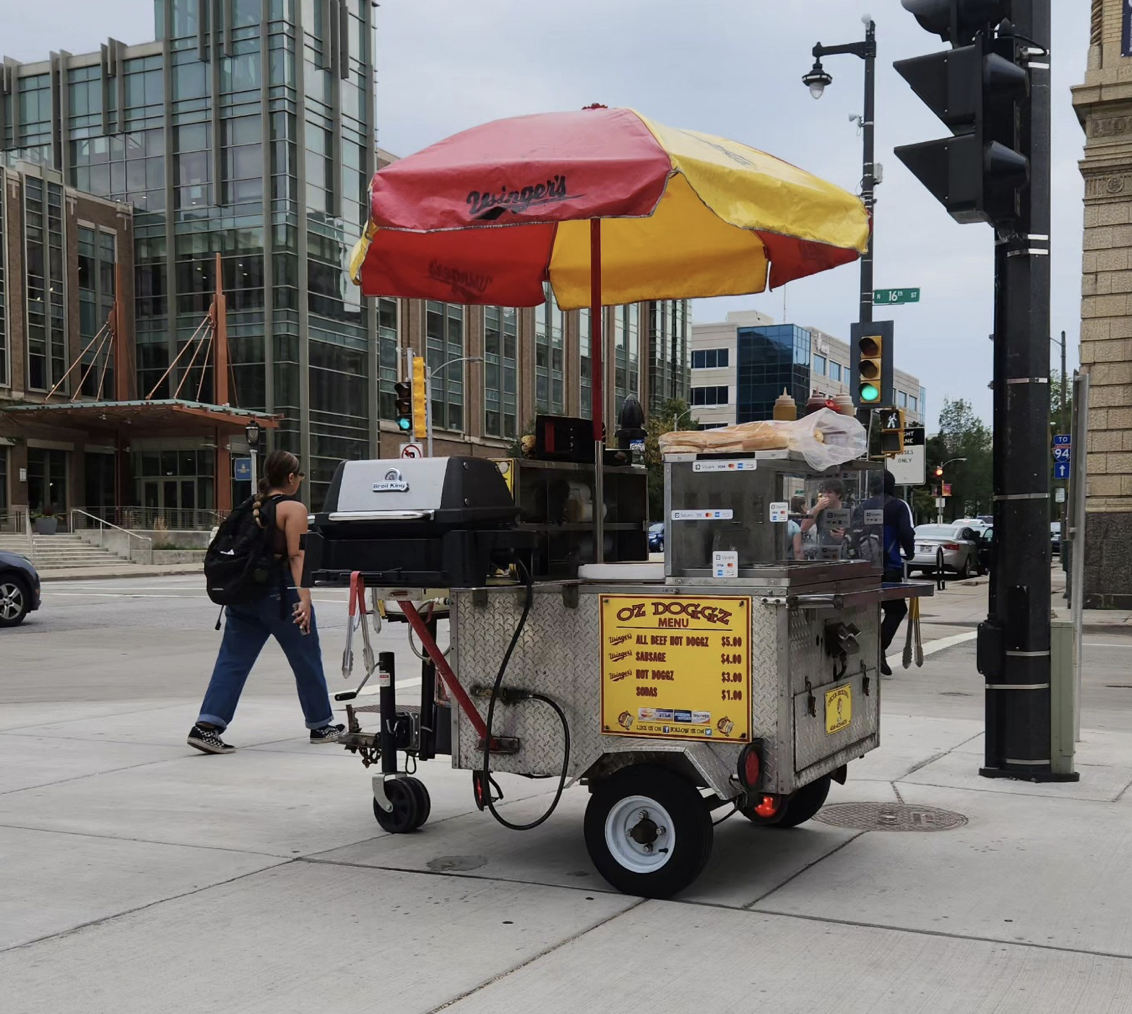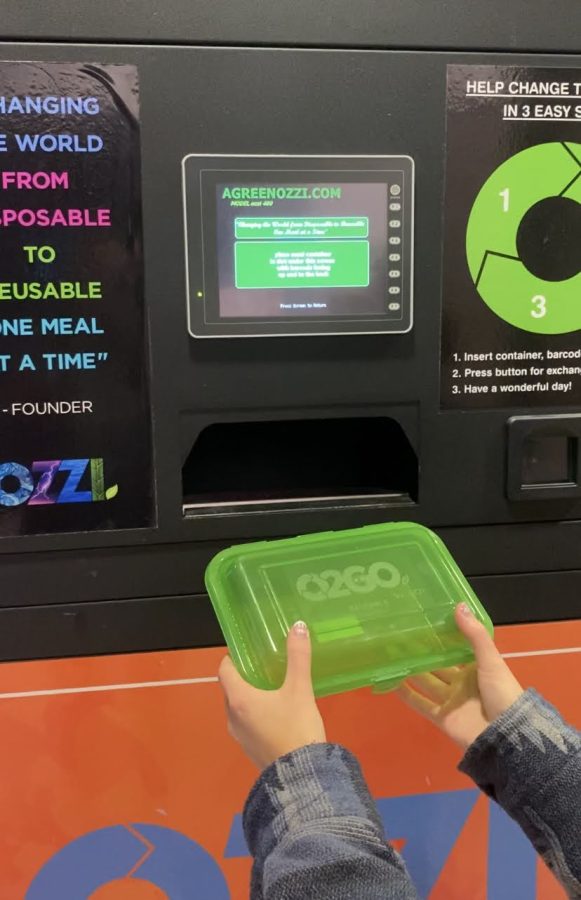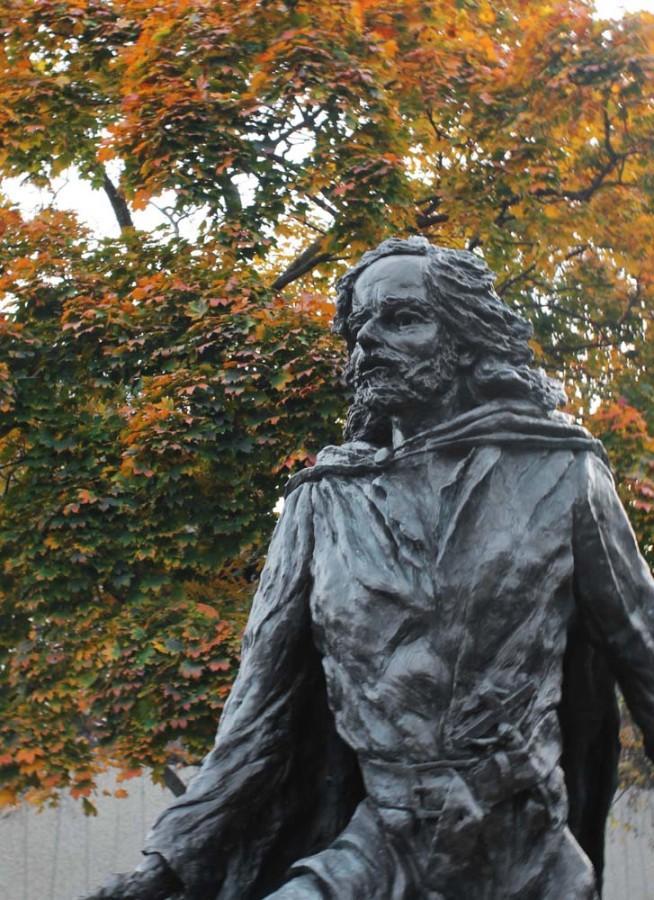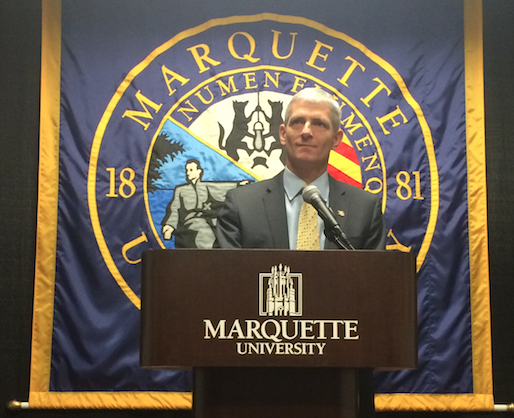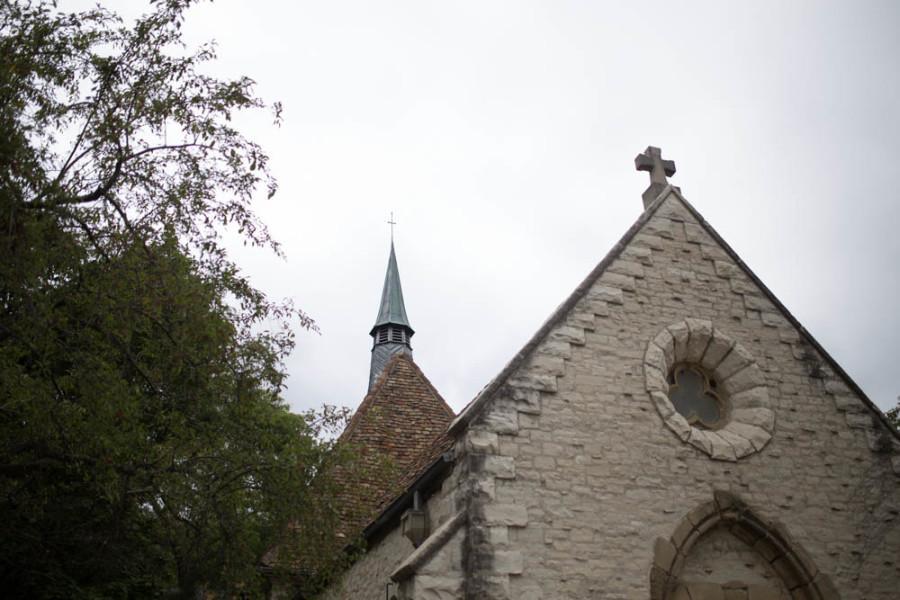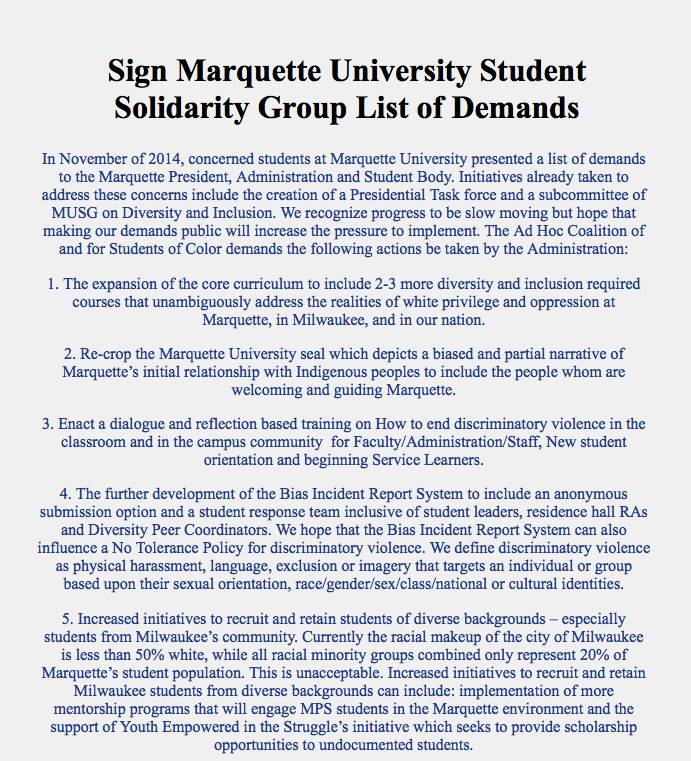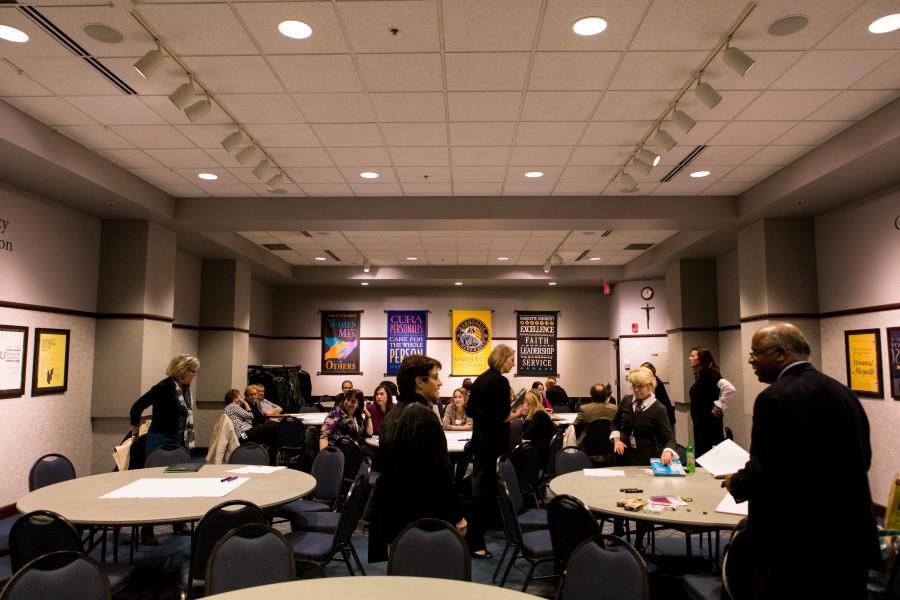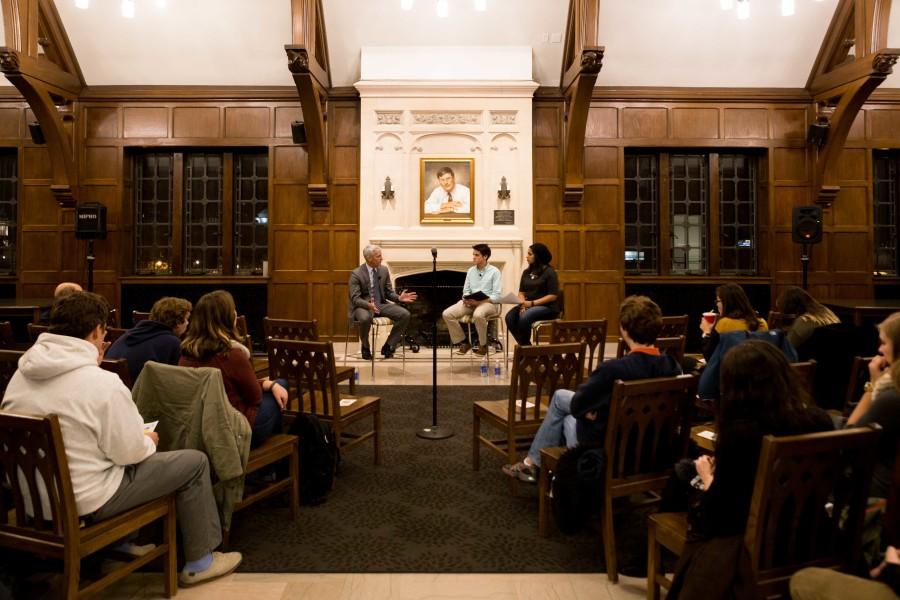Marquette launched a climate study Tuesday as part of the plan to address and improve diversity on campus.
Cheryl Maratano, co-chair of the climate study working group, said the study’s purpose is to measure perceptions. The group’s main goal is to determine how students, staff and faculty feel at Marquette and what can be done to combat campus issues that arise.
“(The climate study) is basically a tool that is used to assess people’s experiences and perceptions of the learning and working and living environment on the campus,” Maratano said. “In other words, it’s really looking at does everyone feel welcome and part of the community.”
The university and climate study working group worked with Rankin & Associates Consulting for almost a year with monthly meetings to develop this year’s study. The climate study working group includes students, faculty and staff.
Sue Rankin, a senior research associate in the Center for the Study of Higher Education, worked with “over 70 institutions/organizations in implementing assessments and developing strategic plans regarding social justice issues,” according to her Rankin & Associates Consulting biography.
Maratano refers to Rankin as an expert when it comes to this subject.
“(Sue) developed this model based on research findings – the transformation repackaging model. It’s about, first of all, identifying the environment and the impact of people’s experience of working there and living there,” Maratano said. “She has all these survey questions that ask people their own experience, their perception and what’s their knowledge with these experiences.”
Maratano goes on to further explain that questions on this year’s climate study were generated specifically for Marquette to ensure they were appropriate for what’s occurring on campus.
The last climate study done at Marquette was administered only to faculty members in 2000. This time around, students will play an imperative role with the study.
“Everybody needs to take the survey. It’s the only way we’ll get a clear picture,” Maratano said. “The more people that take it, the better information we’ll have.”
Once the survey is completed, Rankin will take the data, analyze the results and then write a report that will eventually become available to the Marquette community. Maratano said that once all the surveys are submitted and the data is collected, they will be cleaned of any identifiers to keep all results anonymous.
“The consultant will only provide analysis and results to the university as a whole,” Maratano said. “And then we will also be able to reuse that survey to re-administer in the future to see if we made progress. It’s a really powerful tool, I think.”
Maratano said Rankin is very selective when choosing universities to work with for climate studies, but Maratano said she is confident that University President Michael Lovell will address any issues identified throughout the study.
Other universities have taken part in their own climate studies including Carleton College in 2008. Kansas State University recently closed its survey and will present the final report at the end of April. Drake University also launched a climate study Tuesday.
Although the process of creating a climate study is a long one, Maratano said very few challenges arose. She credits the ease of compiling everything to Rankin’s organization in handling a large group.
More information, including FAQs and a timeline for the survey, can be found on the university’s website.




